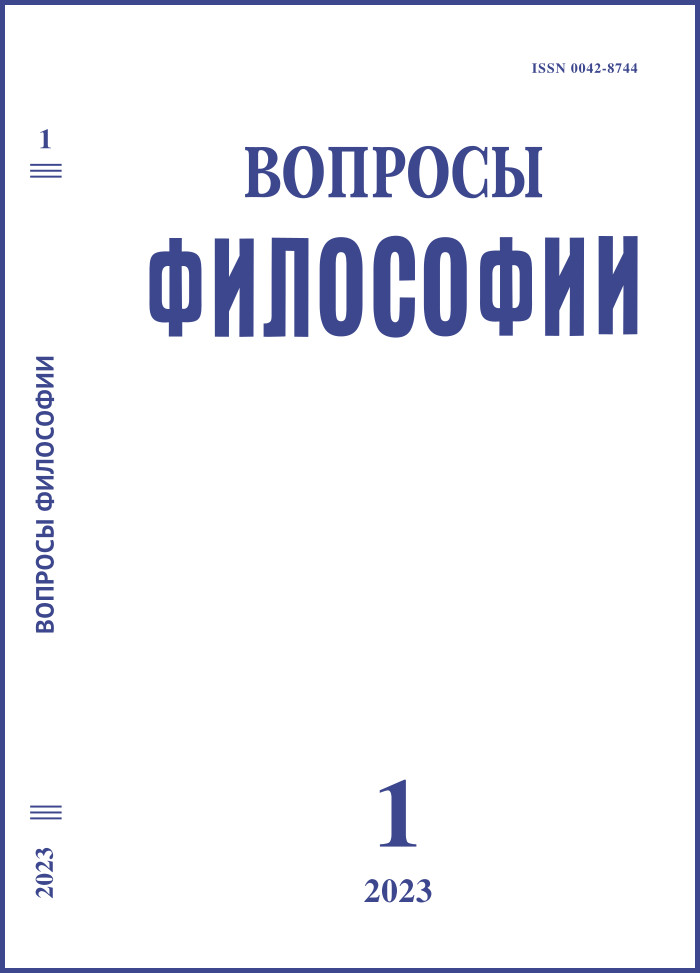Границы философии
DOI:
https://doi.org/10.21146/0042-8744-2023-1-15-28Ключевые слова:
целостность, связность, логика смысла, большая культура, субстанциальное смыслополагание, процессуальное смыслополагание, парадокс Ткаченко, парадокс ЖюльенаАннотация
Способность к целостности и связности предложено понимать как ключевую способность человеческого сознания. Она лишь отчасти роднит человека с животными (восприятие мира как упорядоченного множества вещей), вместе с тем принципиально отделяя его от них (речь и мышление как практика связности, укоренённая в способности к целостности). Обоснованы недостаточность трактовки языка и мышления как оперирования знаками и необходимость понимания речи и мышления как разворачивания связности. Универсальная для человека в своём неконкретизированном виде, способность к целостности и связности разворачивается всегда как вариант, когда задаются основания большой культуры, получающие осмысление в её философской традиции. Отмечены существенные вехи становления европейской философии, разрабатывавшей связность в её субстанциальном варианте, в учениях Платона и Аристотеля. Прослежено полагание связности в её процессуальном варианте, заложившее основы арабо-мусульманской большой культуры, в том числе философской традиции. Сформулированы парадоксы Ткаченко (невозможность концептуализировать какую-либо большую культуру средствами другой, инологичной большой культуры) и Жюльена (невозможность обосновать основания философской традиции средствами самой этой традиции). Показано, что разрешение обоих парадоксов возможно на путях развития логики смысла как работы с целостностью и связностью, преодолевающей ограниченность любой философской традиции её исходным кругом категорий и логических законов, конкретизирующих тот тип связности, что лежит в основании соответствующей большой культуры.

